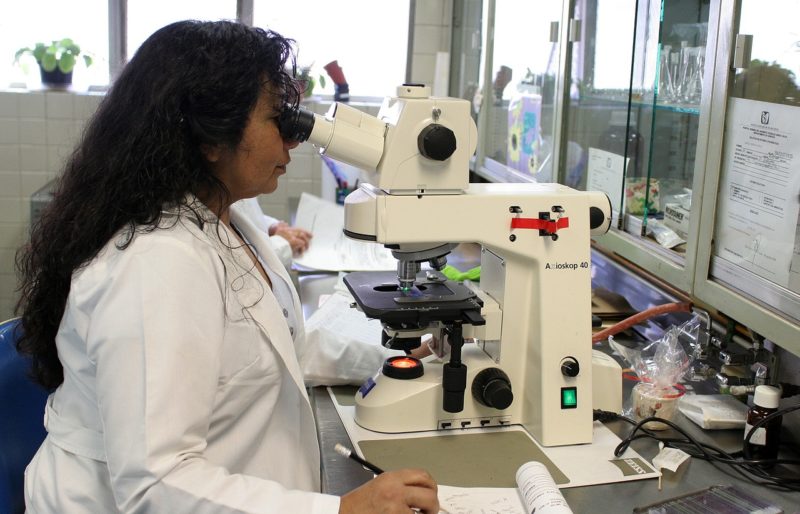
By Lindsay Street, Statehouse correspondent | The state’s top crime lab will get a complete overhaul after years of using 21st century technologies in a building built before DNA testing became a standard of law enforcement. Struggles to process evidence promptly have led to backlogs while local agencies wait for thousands of evidence reports, delaying trials, insurance claims and, ultimately, justice.
Last month, lawmakers approved a 2018-19 budget proviso that puts $54 million toward a new State Law Enforcement Division laboratory near its headquarters on Broad River Road in Columbia. The one-time money was taken from unallocated money in a fund that is normally used to pay down state debt. The building is slated to open by Spring 2021.

“There was never a question on the need for the new SLED laboratory building, [but] it was more about when and how,” said S.C. Sen. Hugh Leatherman, the Florence Republican who chairs the Senate Finance Committee. “The current structure simply does not meet the space and technical needs of a modern 21st century statewide forensic laboratory and the services the lab provides are invaluable to our county, city and state law enforcement. This is especially true for smaller counties and cities, as many rely on SLED’s lab exclusively for their laboratory and forensic testing.”
Fourteenth Circuit Solicitor Duffie Stone prosecutes cases in one of the state’s richest counties, Beaufort, and one of its poorest counties, Allendale.
“We’re depend on science in many, many cases,” Stone told Statehouse Report. “These rural counties are totally dependent on SLED for giving them access to that.”
And while the current lab is processing evidence and even recently won an award for its efficiency, it is getting more and more backlogged due to the aging structure.
“It’s important to local law enforcement to have results returned to them in a timely manner,” said S.C. Sen. Brad Hutto, D-Orangeburg. “Any delay in justice causes problems … Getting people answers to these questions that will allow the case to properly move forward. I don’t know that you can put a value on that. It’s just real important they get this done.”
The problem
The lab is more than 30 years old and unable to be adapted to current demands, SLED officials say.
 “It was designed in a time when DNA was not even a science,” lab director Maj. Todd Hughey told Statehouse Report. He said the building doesn’t allow for the renovations needed to make more room for equipment, and said they have struggled with handling equipment heat loads in the tight space.
“It was designed in a time when DNA was not even a science,” lab director Maj. Todd Hughey told Statehouse Report. He said the building doesn’t allow for the renovations needed to make more room for equipment, and said they have struggled with handling equipment heat loads in the tight space.
The changing technology isn’t the only problem facing the lab. There is also an increase in cases as more and more agencies need to identify synthetic drugs or seek to use DNA to make an arrest. Annually, SLED receives 20,000 cases per year across 309 agencies. Some of those cases could have upwards of 50 pieces of evidence each to analyze.
With so much evidence to sift through, the lab seeks to fast-track and prioritize crimes such as murder.
“We have to treat the cases coming into the cases through the door just like a hospital,” Hughey said. “We have to triage the cases.”
The lab currently has a six-month backlog for drug reports, which is up significantly from a few years ago when it took less than two weeks to issue a report, Hughey said. Toxicology used to be on a 30-day turnaround schedule. Now that time period has stretched into months.
Private labs can test evidence but that can be cost prohibitive, especially for smaller departments, Stone said.
“None of these smaller counties can afford that,” he said. “It adds up.”
On the ground
Berkeley County Coroner Bill Salisbury knows the backlog well.
“We send a lot of our evidence up to SLED, and they are very understaffed and very overloaded,” he told Statehouse Report. He said that it can take up to three months to receive a toxicology report back. The statewide laboratory processes every toxicology report across all agencies, and a majority of DNA and drug testing in the state.
This not only can put justice in limbo, but it also puts bereaved families in limbo, Salisbury said.
“Without a death certificate, you can’t get your insurance policy payout,” he said.
Law enforcement could be unable to make arrests in a case during the wait time and, for suspects waiting for evidence of exoneration, they can spend time awaiting delayed trials either out on bond or in jail, lawmaker Hutto said. Stone echoed those comments.
“The quicker we get scientific evidence, the better it is for everyone. From prosecution standpoint, delay never helps me,” Stone said. “We need to have all that evidence and it needs to be as fresh as possible.”

Around the state, there is an unofficial policy that all an agency has to do is call and ask for results to be expedited — a policy confirmed by both SLED Chief Mark Keel and Salisbury.
“I can call and tell them, ‘This is a priority,’ and they will do it quicker but I don’t want to abuse that privilege,” Salisbury said.
Keel said the new lab will be built with future renovations in mind with an open floor plan that will allow the agency to adapt to changing technologies.
“Although SLED got the funding and the legislature was so gracious to us to do it and they know we’re a great steward of dollars, this money we got for this lab is the chiefs, the solicitors and the coroners,” Keel said. “We only get one shot at $54 million … We’re going to do it right and make everybody proud.”
Keel said they will make decisions whether to hire additional staff when the lab is up and running.
- Have a comment? Send to: feedback@statehousereport.com
















 We Can Do Better, South Carolina!
We Can Do Better, South Carolina!